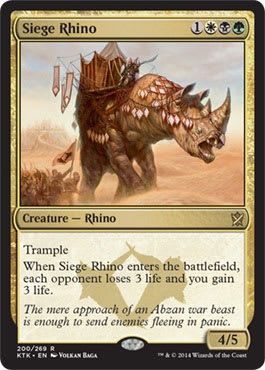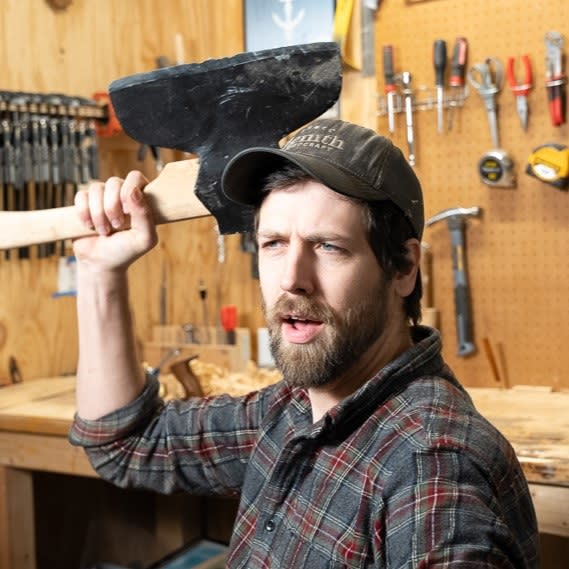This current Standard format has plenty of problems, as various Magic writers and personalities have pointed out in recent weeks. The high price of staple cards, such as fetch lands and the aforementioned Planeswalkers, has created a huge barrier to entry for newer players. This is unquestionably the most expensive Standard format we’ve ever experienced—but rather than dwell on its financial ramifications (because, I’ll be honest, Magic finance is not exactly my specialty), I want to discuss the effects of “solved” Constructed formats on player psychology and how we can combat those effects.
I was moved to write this article after a friend told me she was hesitant to start playing Standard again this season because she thought she’d grow bored playing against the same decks over and over again. Players historically dislike Constructed formats with a small handful of dominant decks; this is why I found Pack Rat and Gray Merchant of Asphodel so irksome earlier in my career and why the mere mention of Caw-Blade still makes some players cringe. Naturally, when I told my friend I was playing a ton of Abzan mirrors on Magic Online, she asked if playing against the same deck repeatedly bothered me. It hadn’t bothered me, strangely enough, and after a moment’s thought, I realized why: With each successive match, I was growing better at playing my deck and at playing the mirror.
I will never deny that the best way to improve at Magic is to continually challenge yourself by playing more matches against more skilled opponents. However, I do believe there are plenty of things you can do in your everyday life to improve your game, even when you aren’t playing. Everything we study and accomplish prepares us for future challenges; self-discipline and focus are some of the most transferrable skills we possess. Whenever I feel I’ve plateaued as a Magic player, I don’t just devote myself to practicing on Magic Online—I also try to spend more time at my yoga studio. Keeping my mind focused and engaged during a yoga class often translates to more focused and engaged play in a game of Magic. Furthermore, yoga encourages us to make small, daily improvements, which is why instructors refer to it as a “practice.” Every day, I practice the same sequence of poses, and every day, I can do something I couldn’t do the day before. I feel the same way every time I play the Abzan mirror—even when you’re playing against the same deck, sometimes even making the same plays, you’ll find small things you could do differently.
About two months ago, I joined a rock-climbing gym in an attempt to overcome my lifelong fear of heights. Years of practicing yoga had given me the strength and endurance to climb increasingly difficult routes, but my lack of proper technique was a hindrance. I asked a more experienced climber for advice, and she suggested choosing a route I found easy and climbing it again and again to build up muscle memory. Sure enough, when my climbing partner and I took our first lesson with a trainer this week, we spent most of the time doing drills: using our big toes, pointing both our heels in the same direction, and sinking our hips low so we resembled sloths instead of crabs. Our final challenge was to traverse an entire wall in silence; every time one of our feet audibly slipped on a feature, we had to come down and start over. After we finished our drills, we went down to the top rope area and each had to choose a route we’d been working on. Tired and sore as I was, I found that, with improved technique, I could finally complete a route I’d been working on for over a week.
As I told my friend last week, learning muscle memory benefits us in physical undertakings, like climbing rocks or playing a musical instrument—but drills and repetition can help us in mental activities as well. If you’ve ever learned a second language, you know this to be true. When I studied the Russian language in college, my professors often shared an old adage to motivate us: “Povtorenie—mat’ ucheniya.” “Repetition is the mother of learning.” Repetition leads to pattern recognition, which helps us make faster, more accurate decisions.
Okay, enough analogies—how does this actually work in a game of Magic? The more you practice a matchup between your deck and another, the more tools you have to win when it counts. Sideboarding becomes automatic; after a few dozen games of Abzan vs. Eldrazi Ramp, for example, I was swapping out the same six cards without even thinking. Threat evaluation becomes easier, so you can use removal and permission spells more effectively. You’ll also learn proper sequencing, which is especially important in our current Standard metagame. Improper land sequencing led me to lose a couple games earlier in the season, but I’ve since learned that I should grab basics with my first two fetch lands if possible. Playing one deck against a small handful of other decks over and over again for two months should yield good results, which is why I plan on sticking with a solid deck like Abzan until new decks start cropping up with the release of Oath of the Gatewatch.
That being said, I would like to conclude this article with a brief word of caution to readers about the importance of always challenging ourselves, even when formats seem stale or solved. Yoga and rock climbing aren’t the only extracurricular activities that helped me improve my self-discipline and focus: I also acquired some transferrable skills from the web-development courses I took over the summer. The instructor for my Ruby class liked to give us bonus assignments, most of which involved watching motivational videos—TED talks and the like. The first video we watched, wherein the psychologist Daniel Goleman discusses the importance of focus, gave credence to a concept that many of us know as “The Zone.”
“The relationship between stress and performance is very well known in psychology,” Goleman says. “It’s curvilinear. It’s an inverted U.” When you’re under a certain amount of stress, you’ll find yourself in a state of “maximal cognitive efficiency”—a state in which we consistently outdo ourselves. Being in “The Zone” requires a certain amount of stress, a challenge to undertake; when we don’t have that stress, our performance still suffers because we’re bored. I’ve begun to notice that I perform better and make fewer mistakes at Preliminary Pro Tour Qualifiers than I do at Friday Night Magic because I play much more carefully under stress. (Keep in mind that the amounts of stress I’m referring to here are relatively small—too much stress can overwhelm us and cause us to perform worse, as Goleman points out.)
Playing against the same people with the same decks week after week may negatively affect your win percentage, so try to create small challenges for yourself every week. Seek out different people with different ideas to test and discuss your matchups. Make small adjustments to your deck each week, adjusting numbers and sideboard slots. If you have a slightly out-there idea, don’t be afraid to try it (and don’t be afraid to be proven wrong and go back to your original decklist).
Until next time, rise to each challenge you set for yourself, even when you aren’t playing Magic. I guarantee you’ll benefit from it.

























